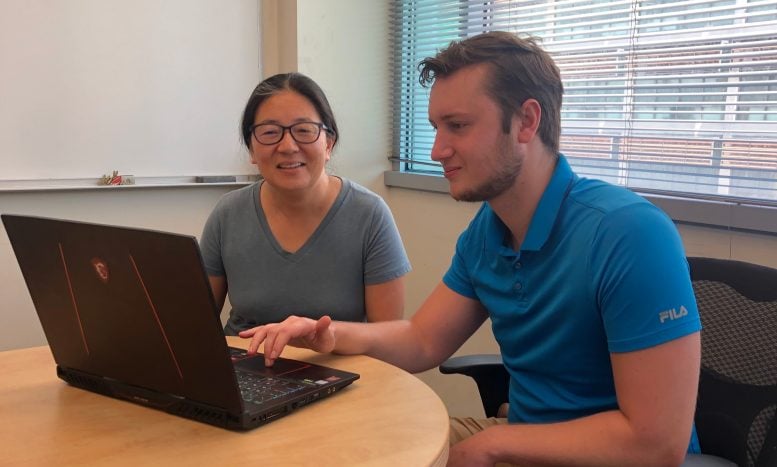
UC Riverside researchers have developed quantum simulators using spin centers to study magnetic phases, potentially advancing information storage and enabling room temperature quantum computing. Credit: SciTechDaily.com
New technologies could enhance methods for storing and transferring data.
Quantum computing leverages the principles of quantum mechanics to address complex challenges in various fields, including medicine and

Photo shows Shan-Wen Tsai (left) and Troy Losey. Credit: Tsai lab, UC Riverside
According to Troy Losey, Tsai’s graduate student and first author of the paper, advances with these devices could make it possible to study more efficient ways of storing and transferring information, while also developing methods needed to create room-temperature quantum computers.
“We have many ideas for how to make improvements to spin-center-based quantum simulators compared to this initial proposed device,” he said. “Employing these new ideas and considering more complex arrangements of spin centers could help create quantum simulators that are easy to build and operate, while still being able to simulate novel and meaningful physics.”
Below, Tsai and Losey answer a couple of questions about the research:
Q: What is a quantum simulator?
Tsai: It is a device that exploits the unusual behaviors of quantum mechanics to simulate interesting physics that is too difficult for a regular computer to calculate. Unlike quantum computers that operate with qubits and universal gate operations, quantum simulators are individually designed to simulate/solve specific problems. By trading off universal programmability of quantum computers in favor of exploiting the richness of different quantum interactions and geometrical arrangements, quantum simulators may be easier to implement and provide new applications for quantum devices, which is relevant because quantum computers aren’t yet universally useful.
A spin center is a roughly SciTechDaily